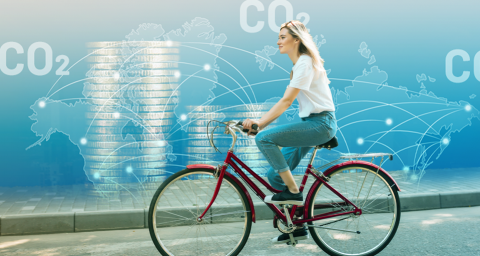Reaching green objectives and global competition: catch 22?
18 September 2020
In this post, Orgalim energy adviser Toma Mikalauskaitė and Orgalim trade adviser and member of the European Commission’s Expert Group on Trade Agreements, Silvia Selandari, discuss whether the carbon border adjustment mechanism or CBAM is the right tool to help balance the green and trade objectives, especially during the COVID-19 crisis.

As the major health and economic crisis unfolded, Brussels embarked on the revolution towards biking known as ‘vélorution’, and some colleagues, including ourselves, decided to shift our mobility patterns and purchase bikes. We were encouraged by city plans to expand the cycling lanes by a total of 40 additional kilometers.
There is plenty of choice based on your specific budget as the main components come from outside the EU, thanks to trade with the third countries.
However, it may be that the price of bikes, and many other products we use daily, will increase in the future due to changes to the existing trade system. One such example could be the planned carbon border adjustment mechanism (CBAM) currently being mulled over by the European Commission.
Why CBAM?
The idea behind a potential CBAM is the reasoning that Europe's efforts to be climate-neutral by 2050 could be undermined by the lack of ambition of our international partners. The new mechanism would, therefore, counteract the risk of carbon leakage by adding a carbon price to products coming from outside the EU.
We see the green transition as an opportunity for Europe to lead by example. We are also fully convinced that this transition, while presenting some challenges, will also help European companies to innovate and grow sustainably.
At the same time, we are worried that a carbon border adjustment mechanism would raise the costs of products for us as consumers.
Since trade is key for EU competitiveness, the carbon border adjustment mechanism should be designed in a non-protectionist way and respect the WTO rules, ensuring markets are – and remain – open for European industries. Moreover, to achieve our green goals, the EU needs to cooperate with its international partners within the framework of the Paris Agreement.
We look forward to discussing this and other key topics related to the greening of the economy at the next Commission Expert Group on Trade.
You can read here the Orgalim trade and climate priorities, including Orgalim’s views on a possible carbon border adjustment mechanism.
